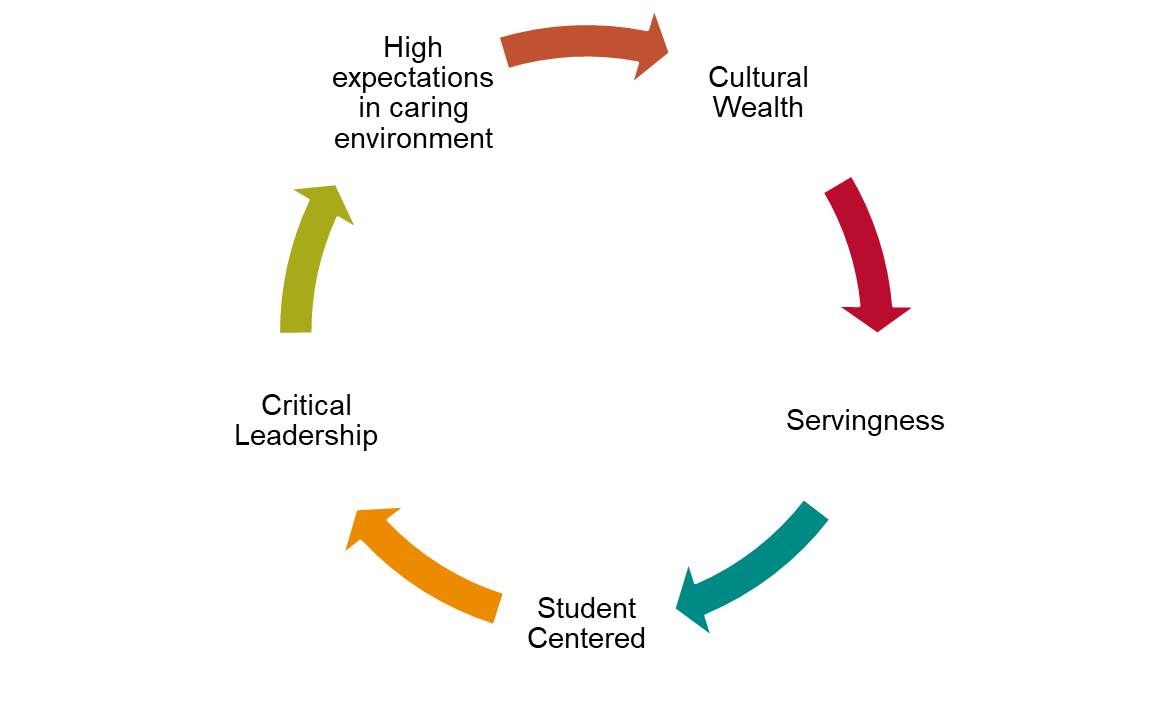What is the Guided Pathways Model?
As opposed to the typical self-service or “cafeteria” model of most community colleges, Guided Pathways provides a structured pathway for students to obtain a degree. Research on the implementation of Guided Pathways model at community colleges indicates that students are more likely to complete a degree in a timely fashion if they choose a program and develop an academic plan early on, have a clear road map of the courses they need to take to complete a credential, and receive guidance and support to help them stay on the plan (Community College Research Center, 2015).
The PASOS Grant will lead the implementation of the Guided Pathways model at UNM-Valencia, based on the premise of four underlying principles:
- help students create clear curricular pathways to employment and education;
- help students choose their pathway;
- help students stay on their path; and
- ensure learning is happening with intentional outcomes (Mortude, J. 2018).
As an institution-wide approach, with challenging yet attainable goals, the Guided Pathways Model will build capacity and improve upon equitable strategies for student success at UNM-Valencia.
The PASOS Grant is comprised of four main activities supported by research and best practices to aid in the Guided Pathways implementation. They include:
- Pathways course sequencing and program mapping activities;
- A comprehensive redesign of Academic Advisement/ Financial Literacy Coaching practices;
- ILEAD program efforts to support stopped-out UNM-V students in re-enrolling in college, and PASOS Resource Center to help students connect with community resources to address non-academic needs; and
- Ongoing professional development of project faculty and staff to advance learning methods to serve Hispanic and/or low-income students and assess project progress.

For more information about Guided Pathways, we recommend the resources below:
Bailey, T., Jaggars, S. S., & Jenkins, D. (2015). Redesigning America’s Community Colleges: A Clearer Path to Student Success. Cambridge, MA: Harvard University Press.
Teachers College at Columbia University: Community College Research Center
California Guided Pathways Project
(2005) Whose culture has capital? A critical race theory discussion of community cultural wealth, Race Ethnicity and Education, 8:1, 69-91, DOI: 10.1080/1361332052000341006
